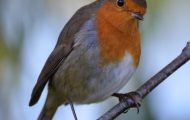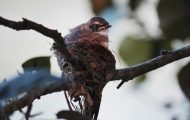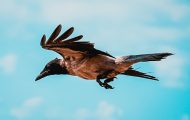Do you want to keep crows out of corn? If you’re a farmer or gardener, crows eating your corn can be an infuriating problem. Crows are known for their love of corn. This means that taking the necessary precautions to prevent them from raiding newly planted or growing corn crops is vital to growing a successful harvest. Fortunately, there are multiple strategies to use effectively to keep crows out of corn fields.
This post will discuss some of the most effective methods to keep crows away from corn. As well as discussing the pros and cons of each option and will also provide tips on how to implement them successfully.
What Are Crows?
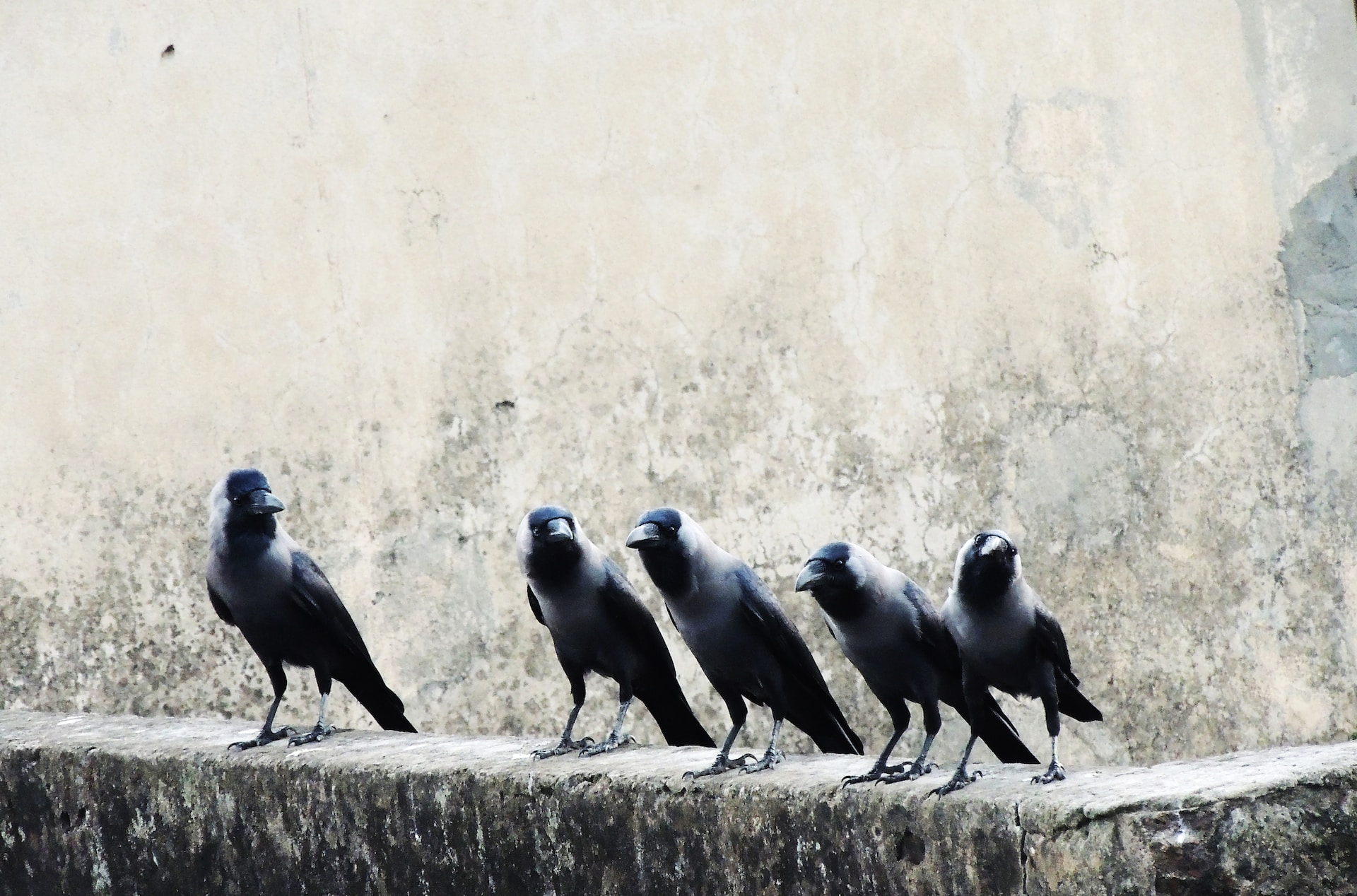
Crows are widespread around the world. In fact, more than 40 species of crows live in different parts of the globe. The American Crow is found throughout most of North America. Other species, such as the Northwestern Crow, live in areas along the Pacific Coast from Alaska to California. Crows also inhabit Europe, Asia, and Africa. They tend to prefer open habitats such as fields and pastures but can also be found near human settlements where they feed on grain and other food sources provided by humans.
☛Physical Characteristics
Crows can be identified by their distinctive black feathers, though they may also have brown, gray, white, or combinations of these colors mixed in. Crows range in size from 15-21 inches long and weigh 12-24 ounces. They are distinguished from ravens by their smaller size and flatter bills.
☛Behavioral Traits
The intelligence of crows is well known throughout history. Recent studies have shown that crows can recognize human faces and will remember them for years! They are also highly adaptive and can use tools to obtain food when necessary. Crows often travel in large flocks to forage for food and protect each other from predators. In addition, crows mate for life, which means that if one of the pair dies or disappears. The other will search until it finds another mate with whom to rebuild its family.
☛Conservation Status
Though crows are widely distributed worldwide, their population numbers remain stable due to their adaptability and resilience. However, they face threats from habitat destruction caused by urbanization and hunting and trapping activities in some areas. Fortunately, conservation efforts worldwide aim to ensure that crows remain abundant in future generations.
Will Crows Eat Corn?
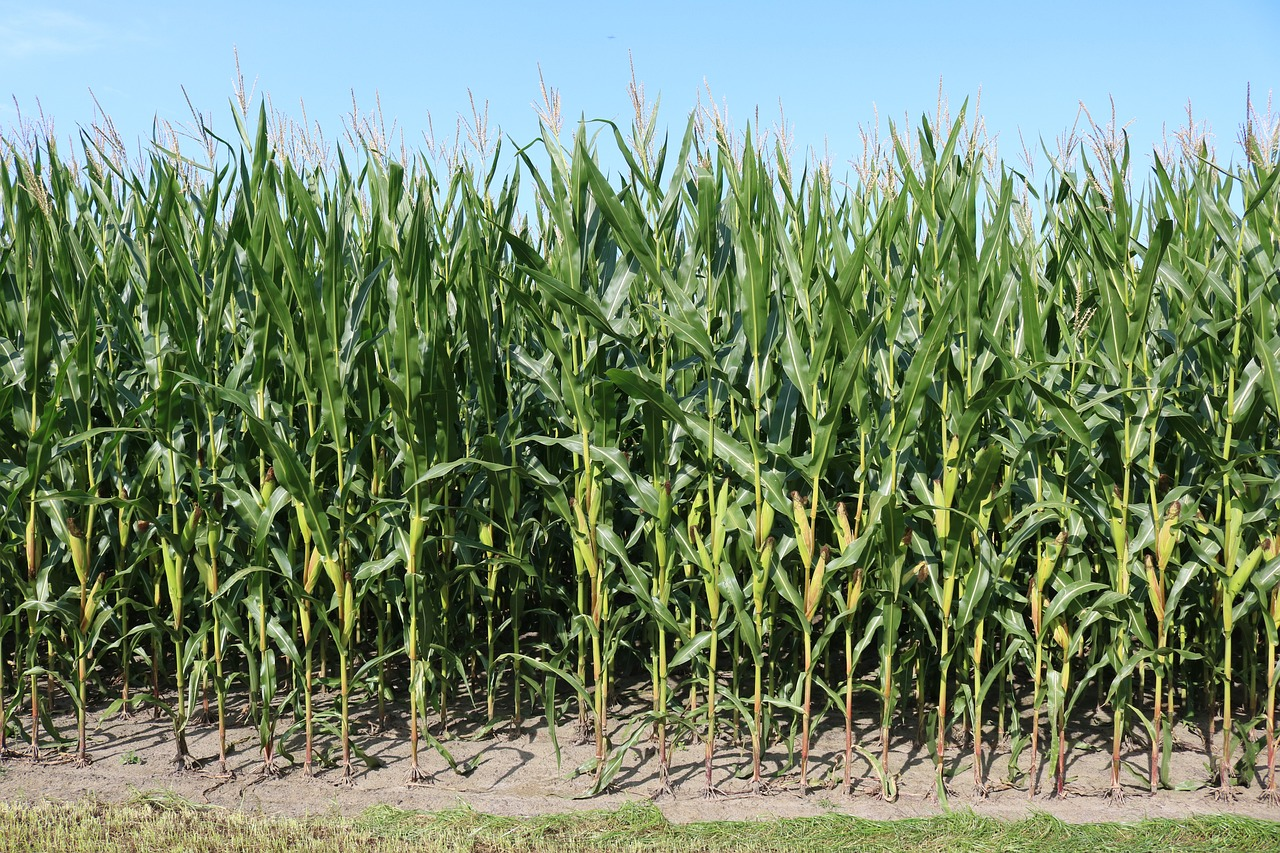
The answer is yes! Crows are highly intelligent birds and are attracted to corn for several reasons. Let’s take a look at why these birds love this tasty treat.
Reason 1: Convenience
Crows like to take the path of least resistance when finding food, and corn is an easy target. All they have to do is fly over a field of ripe corn, and they can feast on the kernels with minimal effort. Plus, they don’t have to worry about pesky predators while they’re in the air!
Reason 2: Variety
Corn grains come in all shapes and sizes, which means there’s always something new for crows to try. Whether they prefer small kernels or large ones, yellow or white, sweet or savory. There’s something for everyone’s taste buds! Plus, unlike other grains (like wheat or oats), corn has a unique flavor that crows seem to love.
Reason 3: Nutrients
Corn contains essential vitamins and minerals that are important for crow health. Vitamin A helps keep their eyesight sharp while calcium strengthens their bones. Folate helps them digest food more efficiently, and vitamin K helps prevent blood clots from forming. All of which are important for any living creature!
Reason 4: Availability
Corn is one of the most widely grown crops in the world, so you can be sure there will always be plenty around for crows to munch on. Even if some fields aren’t producing immediately, another one nearby will be ready soon! This makes it incredibly convenient for crows who want access to a steady food supply without traveling too far away from their nests.
Reason 5: Socialization
Crows are extremely social creatures and often flock together when looking for food sources. Corn fields provide an ideal opportunity for them to gather in large numbers. While still being able to enjoy individual meals as well! It provides crows with both physical sustenance and mental stimulation as they interact with each other during their meals.
These reasons make it clear why crows are so attracted to corn fields. However, if you want to keep crows away from your precious crops, there are several strategies you can try.
How to Keep Crows Out of Corn
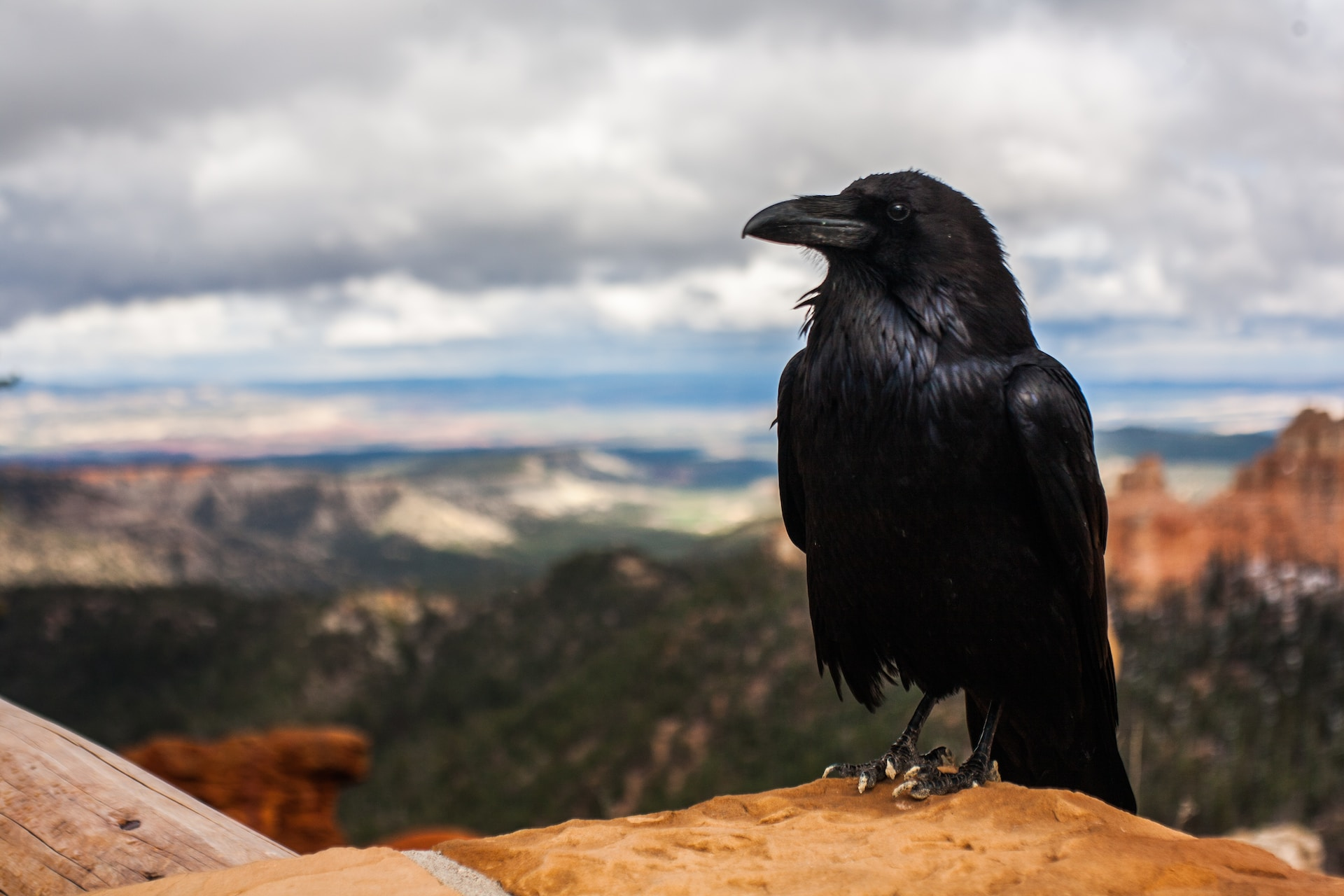
Though it’s understandable why crows are so attracted to corn, most farmers and gardeners don’t want them eating their crops. So, let’s look at some of the best ways to keep crows away from your field of corn.
✔️Scare Tactics (Scarecrow)
Scarecrows have been used to keep birds away from crops since ancient times. The basic idea is that a scarecrow will appear like a person standing guard over your field. And crows will move on when they see it. Modern scarecrows come in many forms, including realistic-looking figures with moving parts or stuffed animals attached to poles. This method isn’t always guaranteed to work, but it can help deter some crows if placed strategically around your field.
✔️Effigies
If you want to up your scare tactics game, effigies are another option. Effigies are scarecrows made from materials that look like actual people. Think clothes stuffed with straw or fabric hanging from a frame. And they’re intended to mimic humans to frighten away birds. You can make a puppet yourself or purchase one online. Make sure the design accurately resembles a human figure and is visible from all sides of your cornfield to maximize the effect on any approaching crows.
✔️Encourage Hunting
Encouraging hunting is another way to reduce crow numbers in your area and thus protect your crop yield. Depending on where you live, this could involve licensing hunting within certain boundaries near your farm. Or providing incentives for licensed hunters who take down crows in nearby areas. Contact local wildlife agencies or organizations if you want more information about this strategy and whether it’s available in your area.
✔️Use Alternative Corn
Consider planting alternative types of corn that are less appealing to crows than traditional sweet corn varieties. Popcorn, for example, is harder for birds to eat because its hulls don’t open easily when ripe. Other types of dent corn have tougher husks that may be less attractive or palatable for crow consumption too. These varieties are not as sweet as other corn types so they won’t draw as many birds overall!
✔️Pyrotechnics
Pyrotechnics are loud instruments such as fireworks that produce flashes of light, and loud noises meant to startle potential pests away from fields. In this case, crows! Pyrotechnics can be useful if you need an immediate solution. However, they should only be used sparingly since too much noise will likely stress out the birds and nearby livestock alike!
✔️Poisoning
Poisoning crows are one of the oldest strategies for controlling pests. And it is still used today by some farmers looking to keep crows away from their crops. Several different types of poisons available on the market have been proven effective in eliminating crow populations.
However, this approach comes with serious risks and should only be used if necessary. In addition to being potentially lethal for other wildlife. These poisons pose a significant health risk to humans if not handled properly or disposed of correctly. Before using this approach, check for local regulations and potential consequences.
✔️Shooting
A shooting approach requires a gun license and should only be done under strict supervision and safety guidelines. While shooting may seem like an easy fix. It’s important to note that this method can cause more harm than good if not done responsibly. In addition, it’s important to remember that shooting is illegal in some jurisdictions and should never be done without checking local laws first.
✔️Trapping
Trapping can be quite effective when done correctly. Traps come in all shapes and sizes but typically involve baiting the trap with food or bait. Such as grain or corn seed and then waiting for the crow(s) to enter the device before setting off the spring-loaded mechanism, which catches them inside. Once caught, they can be released elsewhere or humanely euthanized depending on local regulations.
✔️Audio Deterrents
Audio deterrents are becoming increasingly popular as an effective way to keep crows out of cornfields. It is done without resorting to more extreme measures such as poisoning or shooting. These devices use pre-recorded distress calls or loud noises designed to scare away crows without harming them. While these systems have proven effective in some cases. They may require regular maintenance and repositioning throughout the growing season to remain effective over time.
✔️Plant in Deep Seeds
One way to prevent crows from eating corn is to plant the seeds deeper than usual. The deeper the corn seed is planted, the less accessible it is for birds. Which helps deter them from snacking on your crop. Planting seeds more deeply helps protect them against unexpected weather or temperature changes that could damage the shallowly planted seeds.
✔️Netting
Bird netting has two benefits: firstly, the physical barrier of the netting acts as a deterrent for the crows; secondly, the netting blocks out sunlight. It prevents weed growth around the plants and keeps them healthy. However, you should remember to remove the netting once your crop begins to flower, or else you may accidentally trap bees inside!
✔️Liquid Bird Repellent
Bird repellent comes in many forms, including liquid spray and granular products. These products contain ingredients such as capsaicin (the active ingredient in chili peppers). It makes birds uncomfortable when they come into contact with them. When used correctly and regularly, bird repellent can help keep crows away from your cornfield without harming them or other wildlife.
These are just a few strategies farmers and gardeners can use to keep crows away from their crops. Remember, it’s essential to choose the right strategy for your situation and location while always being mindful of safety precautions and local regulations regarding crow control.
Other Birds that Attracted to Corns
Aside from crows, there are a variety of other birds that can be attracted to cornfields; these include:
🦅Blue Jays
These beautiful blue and white songbirds are found in most parts of North America. In addition to their striking appearance, they’re very vocal and can make various sounds. Blue Jays love eating shelled and unshelled corn from feeders and other seeds, nuts, berries, and insects. They’ll also eat suet from time to time.
🦅House Sparrows
House Sparrows are small brown birds with black stripes on their heads and wings. They’re native to Europe but were introduced in the United States in the 1850s. House Sparrows will happily eat corn from feeders, but they’re also known to scavenge for food in gardens, fields, and parks. They particularly enjoy eating fruits such as apples and pears too!
🦅Mourning Doves
Mourning Doves belong to the same family as pigeons and doves but have distinct grey-brown feathers with black spots on their wings and necks. Their soft cooing sound gives them their name – Mourning Dove. These birds love eating cracked corn or whole-kernel corn from feeders and enjoy sunflower seeds too!
🦅Pigeons
Pigeons are another type of bird that loves eating cracked or whole corn kernels from a feeder. Their distinctive iridescent feathers, ranging from light grey to deep purple, are easily recognizable, depending on the individual bird’s species. Pigeons like to eat grains such as wheat, oats, barley, and millet in addition to corn, so it’s best to offer them a variety of foods if you want them around your garden more often!
🦅Wild Turkeys
Wild Turkeys are large ground-dwelling birds with dark brown feathers and red wattles around their necks. Unlike other types of birds that might come to your feeding station, turkeys prefer eating on the ground, where there is plenty of vegetation available for them to browse through while looking for food. Wild Turkeys love cracked or whole-kernel corn just as much as any other type of bird, so make sure you offer some when setting up your feeding station!
By using a combination of scare tactics, netting, and repellent, you can effectively keep these birds away from your cornfield.
Common Mistakes to Avoid
When trying to keep crows away from your cornfield, it’s important to remember that there are certain mistakes you should avoid. Here are some of the most common ones:
👉Using Visual Deterrents That Don’t Move or Make Noise
Visual deterrents like scarecrows or plastic owls can keep crows away from your cornfield, but only if they move or make noise. Crows are smart enough to recognize static objects and eventually ignore them, even if they initially startle them. So if you’re setting up a visual deterrent in your field, make sure it moves or makes noise.
👉Using Chemical Repellents
Chemical repellents may seem like an easy solution when it comes to keeping crows away from your field, but they usually aren’t very effective. Crows have a strong sense of smell and are quick learners; once they figure out the repellent isn’t harming them, they won’t be scared off by it anymore.
👉Not Taking Advantage of Natural Predators
Another mistake people often make when trying to keep crows away from their fields is not taking advantage of natural predators. If you have hawks or other large birds of prey around your area, don’t hesitate to encourage them by providing food and shelter near your cornfield. The presence of these predators will naturally scare off any crows who may be eyeing your crop.
👉Not Covering Your Corn Field at Night
Crows typically feed during the day, so covering up your cornfield at night can help protect it from being raided by these pesky birds while you sleep. If covering up the entire field seems too much work, consider installing a net over just the ripest parts of the field that would be most attractive to crows looking for an easy meal.
Frequently Asked Questions
Why are crows so loud in the morning?
Crows are incredibly vocal animals, and you can hear their calls throughout the day. Many people say that they can hear crows all night long. So why are they particularly loud during sunrise? When it starts to get light outside, crows will gather together in large flocks called roosts, which is why it sounds like there are more of them than usual in the mornings. This flock behavior helps them stay safe from predators and ensures everyone knows where each other is.
Will crows eat whole-kernel corn?
Crows are omnivores, meaning they eat plants and animals as part of their diet. They love to feast on whole-kernel corn! It’s an easy food source since they don’t have to break it down or crack open a shell before eating it. Corn has plenty of nutrients such as protein, carbohydrates, and oil which help keep them healthy. Be careful if you decide to feed wild crows; too much human food can make them sick!
Will crows eat popped corn?
Yes, but only under certain circumstances! If popped corn is given to wild crows as a treat (and not their main source of nutrition), they love it! However, giving them too much popcorn could cause health issues due to the high-fat content and lack of nutritional value. Stick with feeding them other types of grains like wheat or oats for a healthier alternative.
What sound scares crows away?
Crows have sensitive hearing, so sudden loud noises like gunshots or fireworks will startle them enough to fly away quickly. Other sounds like sirens or car alarms may also work depending on how close you are to the crow. If nothing else works, you can always try clapping your hands or shouting at the crow – just remember not to get too close!
Can crows smell fear?
No – while many animals (like dogs) can pick up on chemical signals related to fear or anxiety, this hasn’t been observed with birds like crows yet. Crows may be able to sense danger through visual cues like body language or facial expressions, though. So if you’re feeling scared around one, stay calm!
How Do Crows Communicate With Each Other?
Most people know that crows make loud “caw” sounds when communicating with each other. But did you know there are different types of crow calls depending on the situation? For example, if one crow is trying to scare away another intruder crow, it will make a louder call than it would when it’s simply saying hello to its flockmates. Similarly, if a parent crow is trying to alert its chicks of danger nearby, it will make a different call than just greeting them after a long day apart. The complexity of their vocal language can be fascinating!
Final Words
The age-old challenge of how to keep crows out of corn continues, but there are some successful strategies the farmer can try. Follow the advice above, and you may be able to keep those pesky crows away from your hard-earned crop! Good luck!

